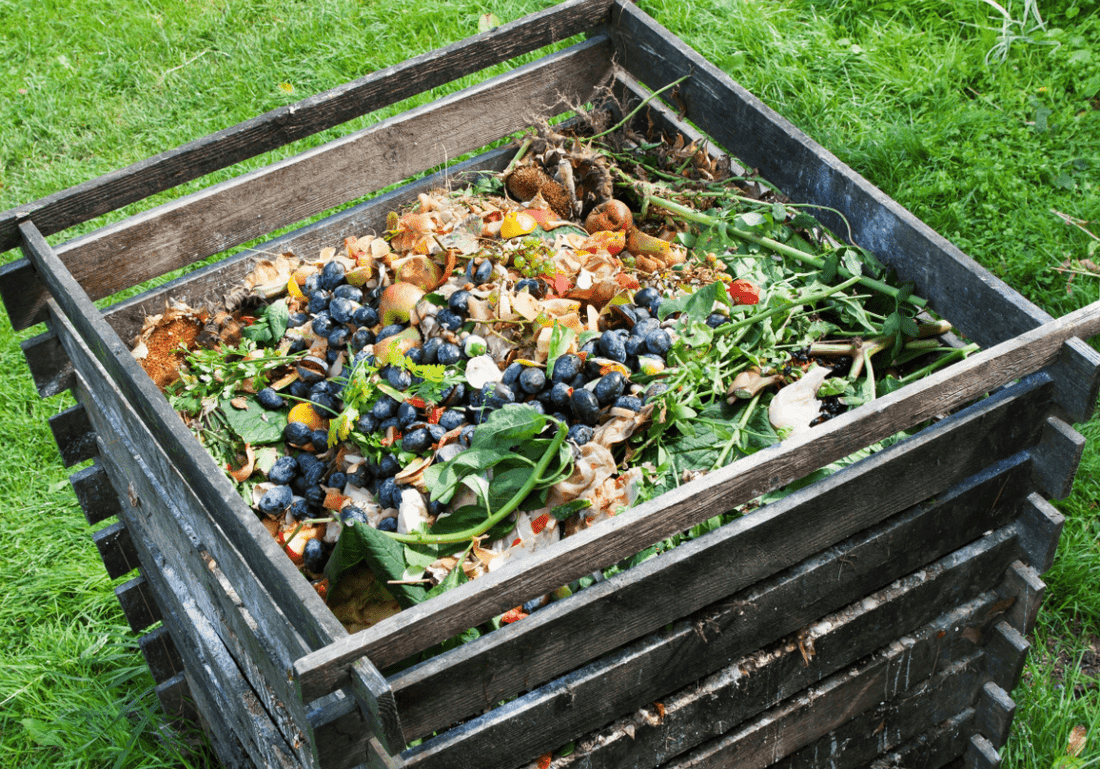How does an onion skin or a rotten apple become soil again? Having your own compost has a number of advantages, which is why it's worth disposing of organic waste in a manner appropriate to the species.
How does an onion skin or a rotten apple become soil again? Having your own compost has a number of advantages, which is why it's worth disposing of organic waste in a manner appropriate to the species.
Compost, which is so useful in the garden, is actually a decomposition product. When organic material is decomposed by the microorganisms in the soil under sufficient oxygen supply, minerals such as phosphates and nitrates are produced in addition to humus. What happens in nature all by itself provides us with end products that we would otherwise have to buy in the form of less environmentally friendly artificial fertiliser.
As a hobby gardener, you can also compost yourself, producing at least some of the compost used in the garden. Another advantage: the contents of the organic waste bin are significantly reduced. Because garden and kitchen waste can go into the compost.
Many advantages - especially with home-made compost
Composting produces hardly anyCO2 - about as much as the composted plant components absorbed during their natural life through photosynthesis. A far greater proportion of theCO2, on the other hand, is bound in the humus that is also produced during composting. Compost is therefore not onlyCO2-neutral, but actually reduces the dangerous carbon.
The humus substances lend new fertility to the potting soil or garden soil and thus improve the overall soil quality. Moreover, when compost is used as fertiliser, the soil does not run the risk of becoming salinised, as is the case with mineral artificial fertiliser. Not to mention that one gets out of the chain of industrial production, transport and sale of artificial fertiliser, thus conserving further resources.
Those who do not want to or cannot make their own compost still have the option of buying it ready-made. However, you have hardly any control over the quality. More and more experts are complaining about the increasing microplastic content in compost. For best results, you should shred it yourself.
Composting is not so difficult: What can be put into the compost - and what not
Because nutrient-rich superfertiliser is easy to make yourself. The composted materials determine the quality of the finished compost. Especially recommended are kitchen waste from fruit and vegetables, lawn clippings or leftovers from the vegetable harvest. Leaves and twigs from the garden are less productive, because it takes a while before they are actually composted. They should therefore not be too voluminous in the mixture of ingredients.
Can be composted:
- Fruit and vegetable waste, fallen fruit
- Waste from kitchen and garden
- Coffee grounds and tea leaves, also with the filter (paper)
- Cut flowers and pot plants
- Small animal dung expressly only from herbivores
- Crushed eggshells
- Pruning
- Weeds pulled out, but before flowering
- Leaves and grass, moss, needles of coniferous trees
Do not put in the compost:
- Meat scraps, fish scraps, cooked food scraps, oil, fat
- Fruit peels from tropical fruits
- Diseased plants
- Plastic, glass, metal
- Nappies
- The contents of the hoover bag
- Dog or cat faeces
- Cigarette butts
Smaller is better
No matter which of the permissible materials go into the compost, it is always better if the substances are no more than the length of a finger. Particularly hard components should be crushed; before adding, make sure that everything that is not organic is removed. After piling up, always mix the upper layers well, as this makes the work easier for the small soil organisms and speeds up the composting process.
How long does composting take?
During the warmer months it can be done very quickly - then the compost is ready after six, sometimes even after four months. In winter it takes longer, so if you don't make your compost until October, you may not be able to use it until the beginning of summer. The ideal time for applying compost is in late autumn, so it is better to prepare it in spring.
It is easy to tell that the compost is ready - you can easily mix the loose, downright fluffy substance with your hands without anything sticking. And: a good, mature compost does not smell.
Better than the dustbin - and good for the garden
Making compost yourself is not that difficult, and those who have a garden or allotment can easily build a composting device themselves or buy one at the garden centre. The kitchen and garden waste is returned to nature, and you can do without expensive and harmful artificial fertiliser. But even those who only garden on the balcony can use compost - pot and balcony plants and the plants in raised beds also appreciate the superpower from nature.
While we at NIKIN are primarily committed to combating global deforestation, we also want to make our community aware of the possibility of sustainable behaviour in other areas of life. Working against nature by composting is one such possibility.























